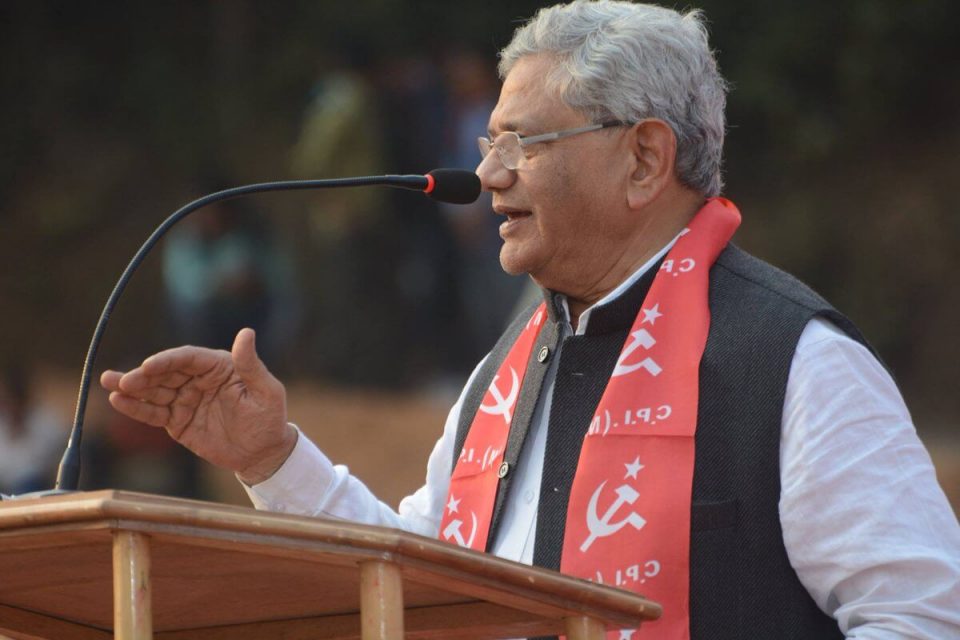The CPI General Secretary Sitaram Yechury claimed that both Congress and BJP receive huge funds from Foreign-based companies and they saved themselves by amending the FCRA.
Communist Party of India (Marxist) general secretary Sitaram Yechury lashed out at BJP and Congress over the amendment of FCRA i.e. the Foreign Contribution Regulation Act. Talking to media, Yechury said that both the parties have saved their skins by amending the FCRA. He also claimed that both the parties receive huge funds from foreign companies. CPI has filed a petition in Supreme Court challenging the constitutionality of electoral bonds introduced by Finance Minister Arun Jaitley during 2017 budget under Finance Act.
Supreme Court bench comprising of Chief Justice of India Dipak Misra and Justices A M Khanwilkar and D Y Chandrachud overlooking the case on Friday issued a notice to Centre and sought its response to the petition. Sitaram Yechury said, “The Congress and the BJP have received huge amounts of money from foreign companies. Had these parties not amended the FCRA, they could have been prosecuted. They saved themselves.”

Sitaram Yechury also alleged that both parties during their term as the government used the powers to devise policies that favoured corporates. “Being recipients of corporate funding, Political parties use their stints in the government to make policies that suit ‘friendly’ corporates,” Yechury asserted.
He even highlighted that the corporate funding to political parties is opaque and thus helps in nurturing the corrupt system. “These corporates constitute the ‘supply side’ of corruption and it is corroding our system. Our problem cannot be solved unless corporate funding is banned,” said the Ex-Rajyasabha MP.
Sitaram Yechury revealed a list of donors who he claimed had contributed huge sums of money to the Congress and the BJP since 2004. The list also included some foreign companies.
Yechury accused that four different statutes were amended under the Finance Act 2017 by the BJP-led Central government to introduce the electoral bonds.
1)The Reserve Bank of India Act, 1934
2)The Representation of People Act, 1951,
As an independent media platform, we do not take advertisements from governments and corporate houses. It is you, our readers, who have supported us on our journey to do honest and unbiased journalism. Please contribute, so that we can continue to do the same in future.

